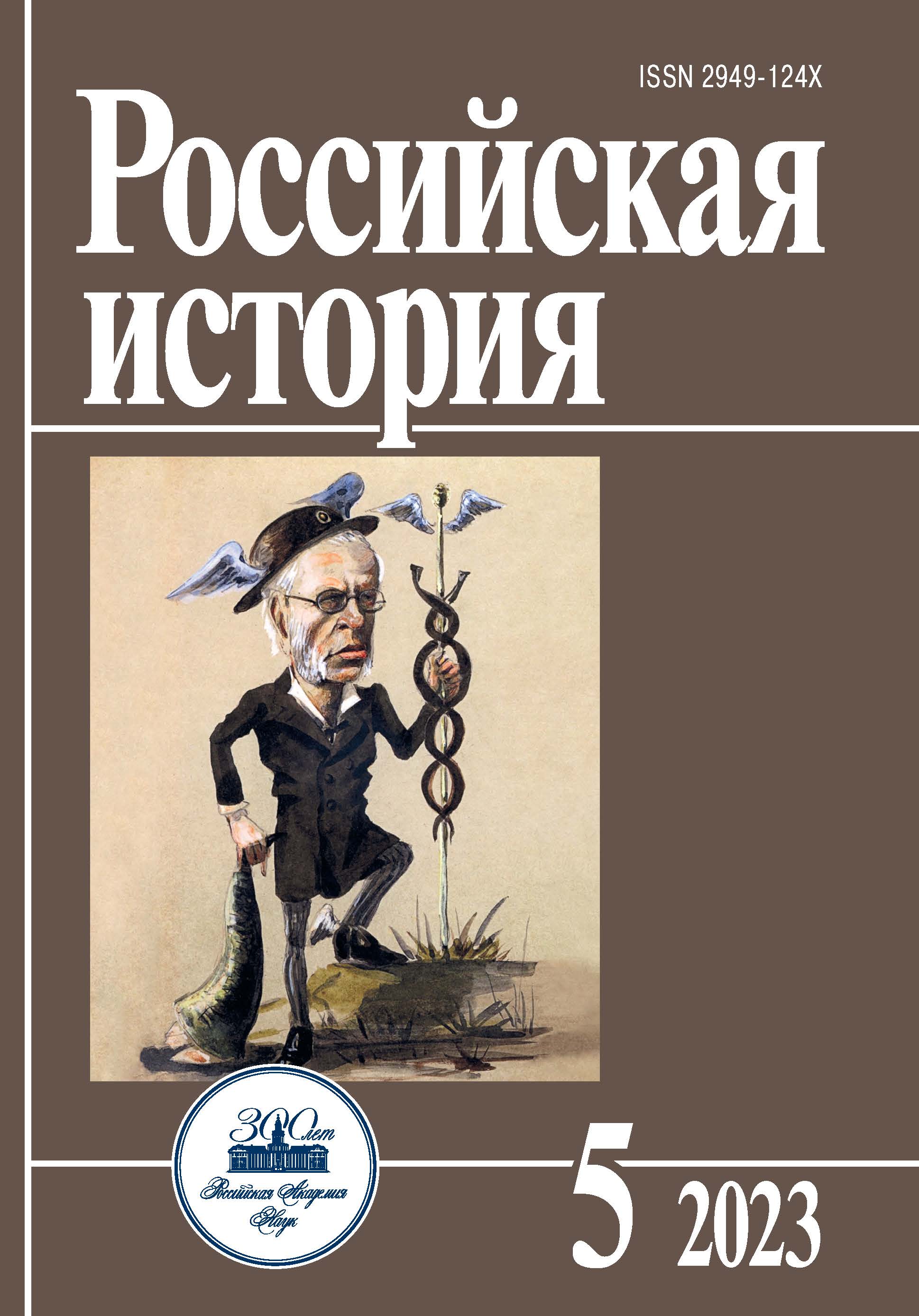Inheritance of cities in the Russian state by the sons of Ivan III according to his will of 1503
- Autores: Kuchkin V.A.1
-
Afiliações:
- Institute of Russian History, Russian Academy of Sciences
- Edição: Nº 5 (2023)
- Páginas: 23-40
- Seção: Articles
- URL: https://archivog.com/2949-124X/article/view/663704
- DOI: https://doi.org/10.31857/S2949124X23050024
- EDN: https://elibrary.ru/OWQMRA
- ID: 663704
Citar
Texto integral
Resumo
The article is devoted to the distribution of possessions, mainly cities of the Russian state at the beginning of the XVI century, between the five sons of Ivan III (Vasily, the future Vasily III, his brothers Yuri, Semyon, Dmitry and Andrei, born in the marriage of Ivan III with the Greek Princess Sophia Palaiologos). This distribution was fixed by a will ("spiritual letter") Ivan III, composed in 1503. In historical science, both domestic and foreign, this testament has clearly not been studied enough, although the first publication of this document dates back to 1788. The source was already known to N. M. Karamzin. S.M. Solovyov pointed out that the will mentioned 66 cities that Ivan III had bequeathed to his eldest son Vasily and 30 cities bequeathed to 4 younger brothers of Vasily, taken together. Where the historian got these figures from, he did not explain. Nevertheless, V.O. Klyuchevsky used them to show how much the material possibilities of Ivan III's eldest son Vasily had grown. In Soviet times, the will of Ivan III was often quoted, but in general it was never studied. An appeal to this source showed that it does not refer to 66 cities that were tied to the future Vasily III, but at least 95. His younger brothers in total received not 30 cities, but 26 and half of another 1 city. Ivan III's successor Vasily eventually received more than 78% of all cities in the Russian state, his four brothers - less than 22%. At the same time, the younger sons of Ivan III were forbidden to expand their possessions, they became precarious, and Vasily III received the right to deprive his brothers of their inheritance if they schemed against him. The immediate result of these innovations was the cessation of the internal dynastic struggle in the Russian state among the Moscow Rurikovich.
Sobre autores
Vladimir Kuchkin
Institute of Russian History, Russian Academy of SciencesMoscow, Russia
Bibliografia
- Ключевский В.О. Сочинения. Т. II. Курс русской истории. Ч. 2. М., 1957.
- Кучкин В.А. Московские Рюриковичи. Генеалогия и демография // Исторический вестник. 2013. Т. IV. C. 6 - 73.
- Пресняков А.Е. Образование Великорусского государства Пг., 1918.
- Соловьёв С.М. Сочинения. Кн. III. История России с древнейших времен. Т. V. М., 1989.
Arquivos suplementares










